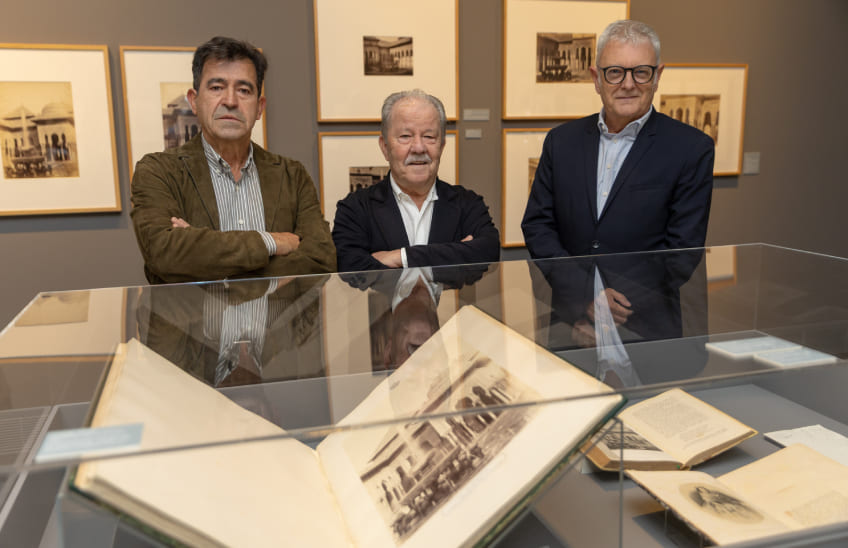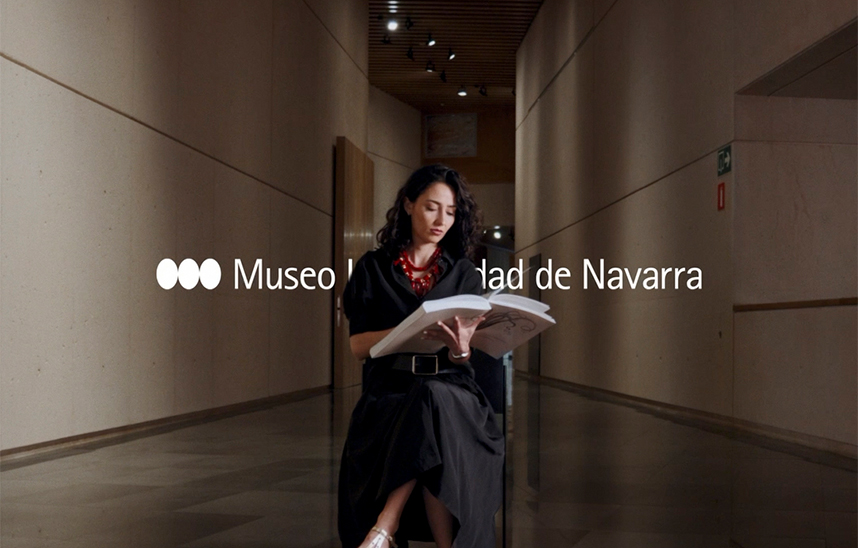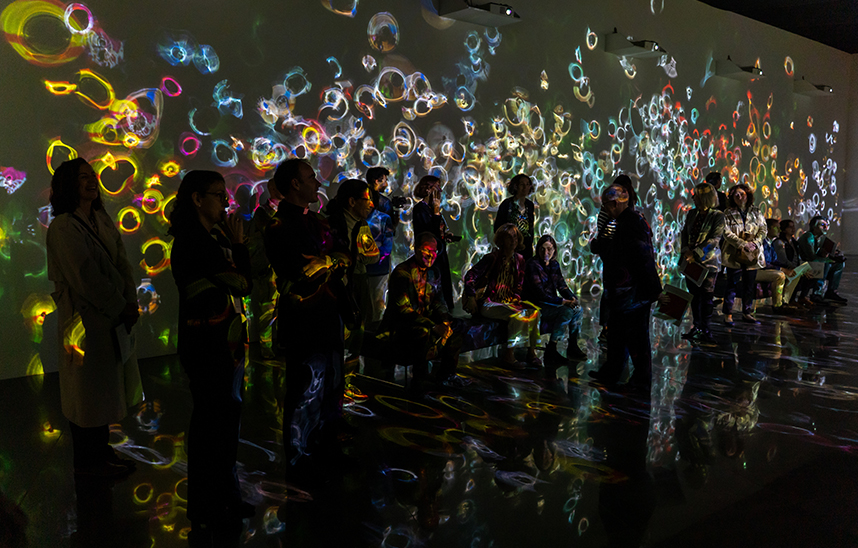MUN expands the Ortiz Echagüe space
On October 28th, the new space was officially inaugurated, located on Floor -1, which doubles the issue of linear meters and works exhibited, and includes a black conference room where you can watch the video about the biography and techniques of the photographer.

30 | 10 | 2025
The space now presents a selection of works by Ortiz Echagüe that focuses on the author's treatment of the construction of the image in his photographs.
The now enormous MUN Collection has its origins in the donation of the bequest of photographer José Ortiz Echagüe, made to the University of Navarra in 1981. And from Tuesday 28th, part of his work can be seen in a new space dedicated to his work. Martina Massad and Andrea Vargas are graduates of the Master's Degree in curatorial programs of study at the MUN, and end their year as junior curators of the Museum by signing this project graduate "The aura and the construction of the image. José Ortiz Echagüe". It focuses on the way in which he constructed the final image in his works, through his manipulation during the different steps of the procedure he used to print the photographs.
The space is supported by ATValor, a business with family ties to the artist. Its general manager, Ángeles Aguilar, comments on the company's commitment to the Museum: "We wanted to support the project from the beginning, because we share the firm conviction that art enriches people, gives us a new way of looking at the world and favors dialogue in freedom. That is why we support cultural projects such as the MUN and the Prado Museum.
The new space has also been made possible thanks to the partnership the Government of Navarre, and visit to the MUN will continue to be free for the remainder of 2025, thanks to the support of the Pamplona City Council. The sample can be visited until October 2026. It is organized around five thematic nuclei(North Africa, Types and Costumes, Villages and Landscapes, Mystical Spain and Castles and Alcazars); and is completed with a projection and material from the photographer.
Gabriel Pérez-Barreiro, artistic director of the MUN, underlines the Museum 's commitment to theOrtiz Echagüe bequest , "as a historical figure, but also as an inspiration for contemporary creation", as well as the importance of the fact that it is former students of the Master's Degree who give their visions of their bequest "and manage to keep it alive and current".
The curators have placed the space dedicated to the author's production in a large and very visible location for the visitorFloor -1 of the MUN), which has allowed them to exhibit more works than in previous proposals, going from twenty images to about 50. They have also tried to opt for a selection of little known images, such as Franciscans praying, Bullfighters, Ansó. Huesca or Aguadores de Meknes.
In their selection they have focused on the manipulations that Ortiz Echagüe made in his works, interested in seeing that from the same negative, and thanks to the technical procedure he used, different positives could be obtained, all of them understood as individualized images. They allude to the photographer's technique, "known for being long and laborious. The procedure has always been explained - direct charcoal on Fresson paper, a method that gives his images a very recognizable look - but we wanted to show how all this is transferred to the developed images, without having to understand it on a technical level," they explain.
"Ortiz Echagüe always defended the documentary role of his photography," they say, but it is enough to look at the copies of his works kept in the MUN file to see that many of them "he retouched them to get the result he wanted; and not only that, but in books and biographies you can read how he made a 'staging' to direct the image he wanted to document," they explain.



